‘I Choose Saving Lives Over Money’: For Nine Years, Doctor Delivers 2000 Girls For Free
At Pune's Medicare Hospital, the birth of every girl child is an occasion to celebrate. Meet Dr Ganesh Rakh, the mind behind a beautiful initiative to promote gender equality, wherein every girl child's birth is free of cost.
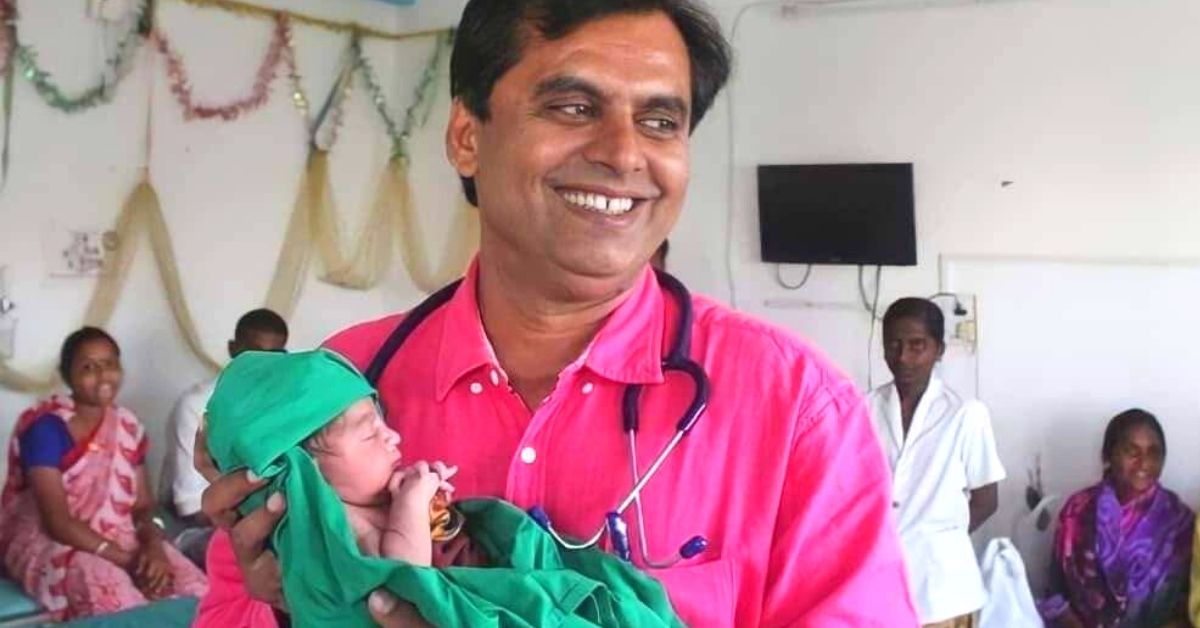
“Ghar mein Laxmi aayi hai!” yelled Santosh (name changed), who had just become a father in Pune’s Medicare Hospital Foundation.
Santosh had taken a loan of Rs 1 lakh for his wife’s delivery and other medical needs after losing his job due to the COVID-19 pandemic. Right before the delivery, his friend informed him about Medicare’s free delivery scheme for girls.
Santosh decided to take a chance and admitted his wife to Medicare. While he was prepared to pay the bill if it was a boy, his joy was unparalleled when he learnt it was a girl. The patient’s C-section was free because it was a girl as per the hospital’s policy.
Santosh thanked the gynaecologist who delivered the baby, and hugged the owner of the hospital, Dr Ganesh Rakh, for the policy.
“For 15 minutes or so, he must have prayed to Goddess Laxmi and thanked us for saving him so much money. It felt as though the importance of a girl child had suddenly dawned upon him,” Dr Ganesh recalls in conversation with The Better India.
For the last nine years, Dr Ganesh has been witnessing both tears of happiness as well as sadness when a girl child is born. Patients curse and laude the occurrence equally, he says.
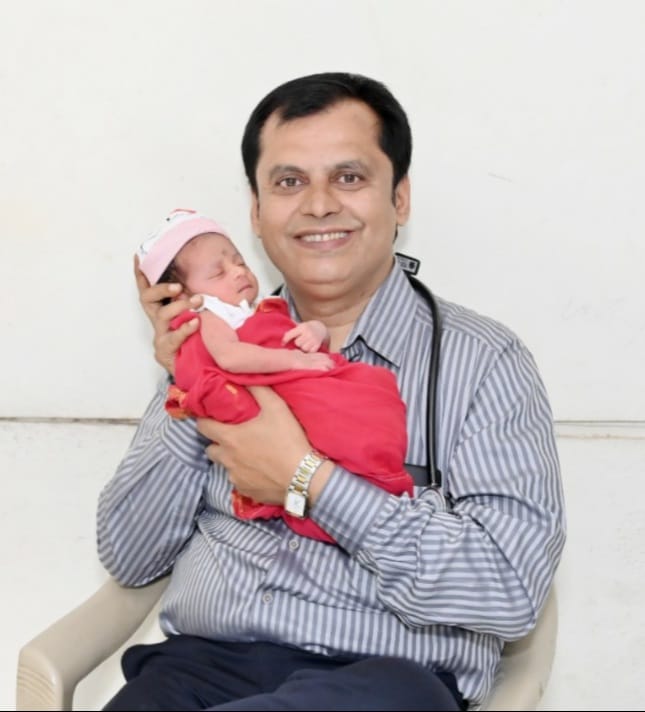
The environment in the hospital on the birth of a girl child is quite a stellar show, almost unmissable, he says. From distributing sweets to everyone inside and outside the hospital to singing songs and decorating the floor, the staff at Medicare goes all out every time a girl is born.
This is in stark contrast to the atmosphere that prevailed before 2012. A girl child was unwelcome, mothers were humiliated, and relatives behaved as if someone had died.
It were Dr Ganesh’s dedicated efforts to fight against female infanticide and gender discrimination that have changed the picture completely.
“I don’t have a sister and I grew up with two younger brothers, but I knew girls were treated differently back in my village in Solapur. The neighbours were very strict with daughters and a girl child was considered a burden that needed to go away immediately. While I was aware of such biased customs, I had never been privy to them. It was only after starting my facility that the reality started affecting me deeply,” says Dr Ganesh.
Gender tests, desire to die & skewed sex ratios
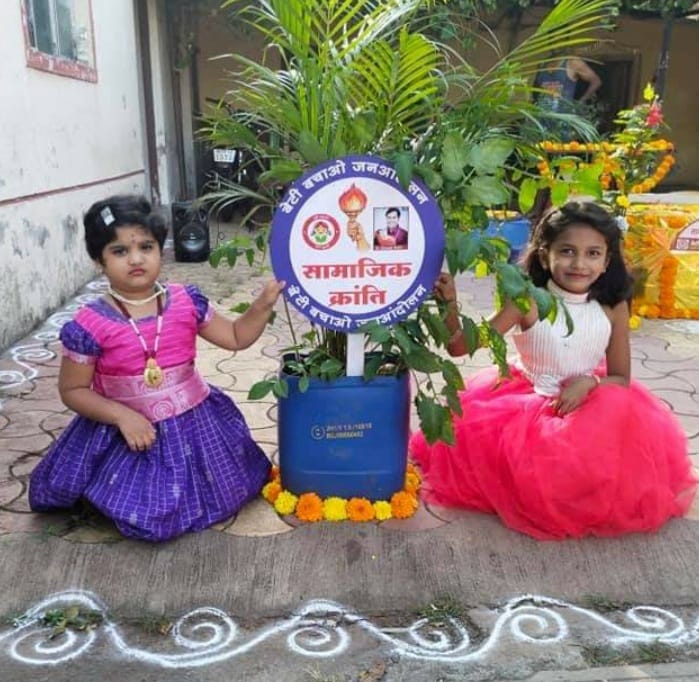
Growing up, Dr Ganesh had his own set of hardships to face. He spent his childhood in a kutcha house and his father was a coolie. While he always wanted to become a wrestler, even managing food was so hard that he had to do away with his dream.
He says that when he was in class 8, he realised the importance of education.
“At this point, I had started assisting my father in coolie work at railway stations. I vowed to study hard and pursue a better career with job security, good money and stability. I completed my MBBS in 2001 and started working as a general practitioner,” says Dr Ganesh.
Having seen and experienced poverty first hand, Dr Ganesh tried to understand why relatives wouldn’t pay bills citing money issues. But soon, he realised the matter was totally different. It was about gender.
He had hired two gynaecologists to deliver and both of them dreaded breaking the news about the birth of a girl child.
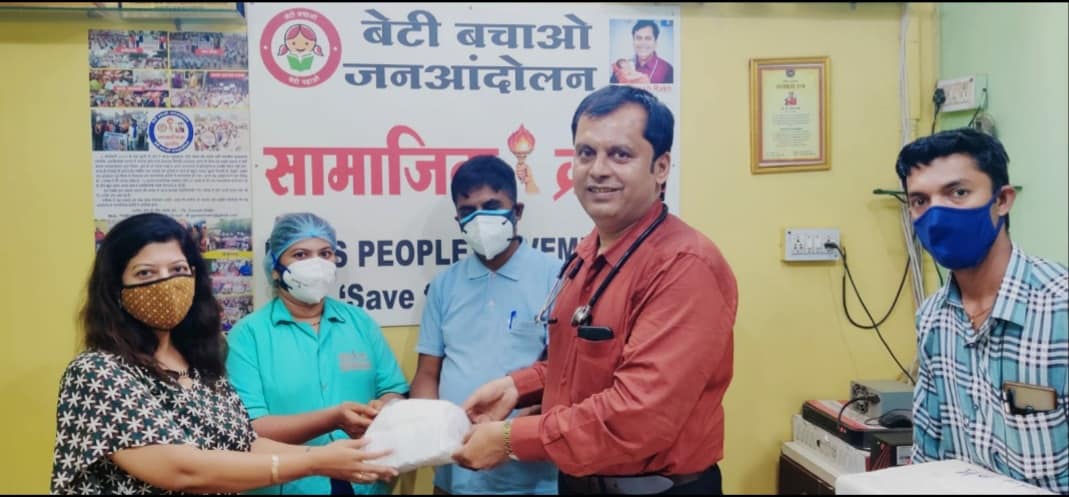
“So many new mothers have wished to die on seeing their newborn for the first time and some do not even touch the baby upon knowing the gender. The relatives have called us thugs after seeing the girl child. They have accused us of swapping the babies and what not. All this is happening in an urban and developed city like Pune, I cannot even begin to imagine the plight in villages,” he adds.
Dr Ganesh has also been requested for gender tests on multiple occasions before the delivery. Couple have also asked about diet plans to follow for a boy before conceiving.
This grim situation is backed by the current trends in India’s overall sex ratio. According to a Sample Registration System (SRS) Statistical Report (2018), the number of females per 1,000 males declined from 906 in 2011 to 899 in 2018. The sex ratio at birth in India is the lowest among all the countries and only second to China, the report adds.
Lowering fertility rates, preference of a son, and access to sonographic scanning during pregnancy are some of the reasons that can be attributed to this imbalance trend.
It has been estimated that 4 lakh female births are missed every year in India due to sex selection. This pattern is high in states like Madhya Pradesh, Uttar Pradesh and Himachal Pradesh. According to the 2011 census, 4 million girls aged between 0 and six years were missing due to sex selection and female mortality.
Reading about these trends and even seeing them first hand, Dr Ganesh began Mulgi Vachva Abhiyan (Save the Girl Child Campaign) in his hospital.
Bringing a mindset change
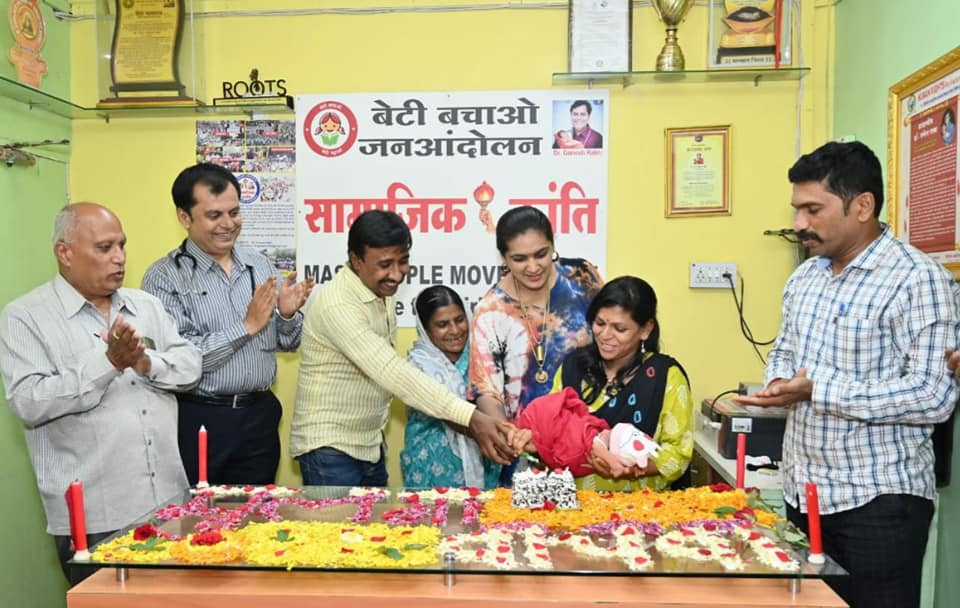
No one from his family and hospital staff supported Dr Ganesh’s ‘non-rational’ and ‘loss making’ campaign in the beginning. On the first day of the campaign, when he celebrated the first ever birth of a girl by distributing sweets, people called him crazy.
On the monetary front too, he received flack from his family for letting go of Rs 25,000 (normal delivery) and Rs 50,000 (C-Section) every time a girl was born.
But Dr Ganesh paid no heed to the negative feedback. “I have lived in poverty the majority of my life, so I can manage less money even now. What kind of a doctor would I be if I thought about money over saving lives?”
Over the years, he has delivered over 2,000 babies for free, so when asked if he has ever calculated the total amount he let go of, he laughs and says, “I don’t want to scare myself or my family by seeing that figure.”
In the first year of the campaign, he waived fees for 130 babies and this naturally grabbed headlines in regional, and a few national, papers.
Soon, doctors around India reached out to him and pledged to follow his suit. This gave him the idea to form a doctors’ collective and inspire as many doctors as possible.
Dr Ganesh has reached out to over 4 lakh doctors across India and abroad over the years.
“It is unfair to ask doctors to give free delivery but even if they can do a handful of them, the message is reached. Some doctors give discounts depending on their capacity,” says Dr Ganesh.
Dr Satish Andhale Patil of Mauli Hospital in Pune has been delivering baby girls for free since 2017.
“I have seen 15 suicides of women who had given birth to their second daughter and were in despair. When Dr Rakh started, I knew I had a social responsibility to do the same,” Dr Patil told the Sydney Morning Herald.
Dr Sachin Sanap, a gynecologist, was also inspired by Dr Ganesh and started free deliveries five years ago. He works at Sanap Women’s Clinic and Apollo Manjari full time and is an on-call doctor in ten hospitals.
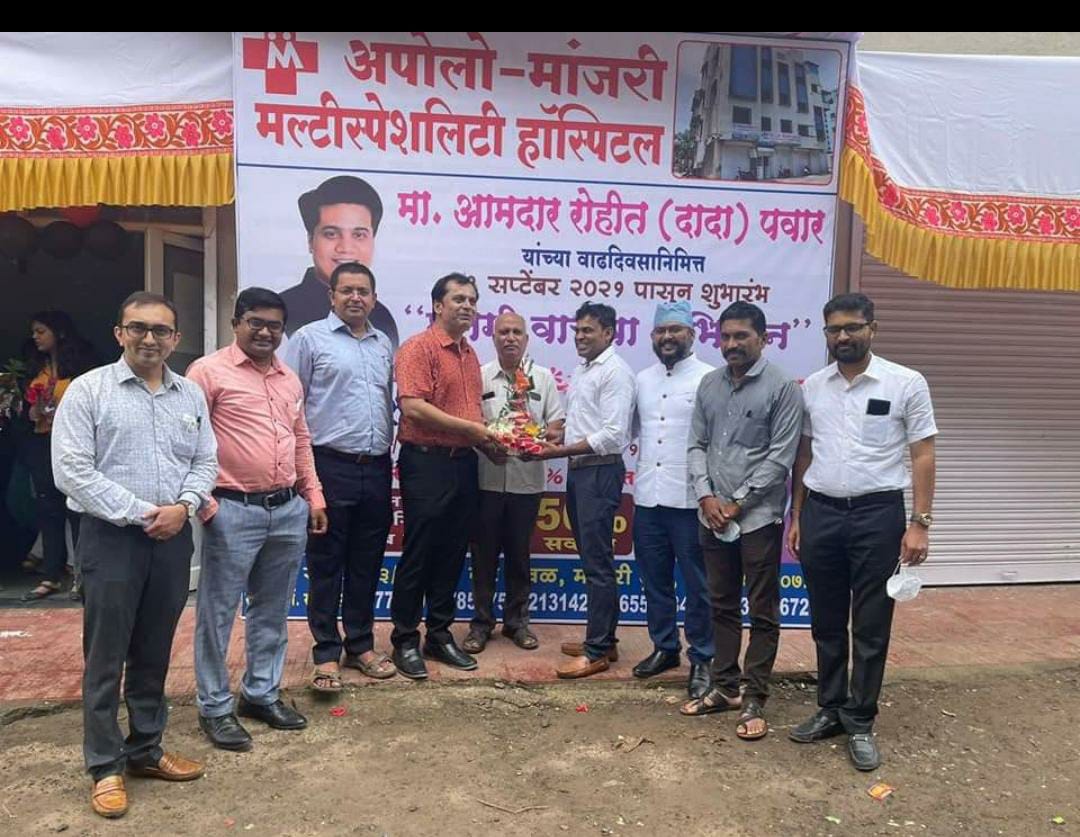
“I have delivered close to 250 female newborns for free so far, and for each of them, we have celebrated by cutting a cake and providing a babycare kit. I have placed banners outside my clinic about this initiative. When to-be parents come to register for birth, they often say that we have no tension if it is a girl, and I think that is the change we need to see,” Dr Sachin tells The Better India.
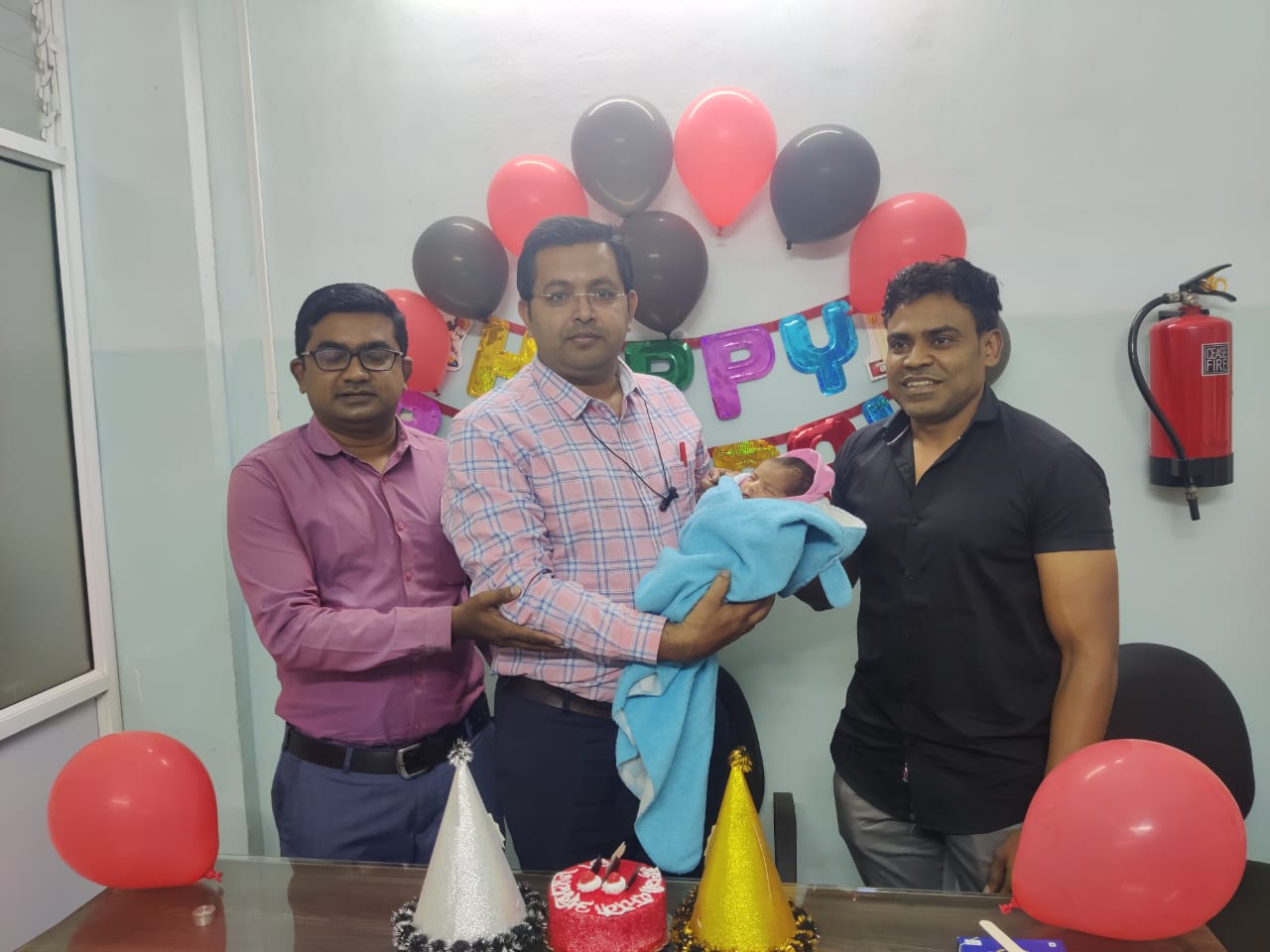
For his sincere efforts, Dr Ganesh has received multiple recognitions. But he says the most rewarding has been the gratitude of new parents, especially mothers. Some of his old patients have even thanked him as their daughters are doing well in studies.
As for his own family, his 15-year-old daughter, wife and parents are very proud of him and his work.
“For centuries, we have believed in the saying ‘Ghar ki Laxmi’ and it is so fulfilling to see that translate into reality right in my hospital premises,” Dr Ganesh notes.
All images are sourced from Dr Ganesh Rakh
Edited by Divya Sethu
If you found our stories insightful, informative, or even just enjoyable, we invite you to consider making a voluntary payment to support the work we do at The Better India. Your contribution helps us continue producing quality content that educates, inspires, and drives positive change.
Choose one of the payment options below for your contribution-
By paying for the stories you value, you directly contribute to sustaining our efforts focused on making a difference in the world. Together, let’s ensure that impactful stories continue to be told and shared, enriching lives and communities alike.
Thank you for your support. Here are some frequently asked questions you might find helpful to know why you are contributing?


This story made me
-
97
-
121
-
89
-
167













